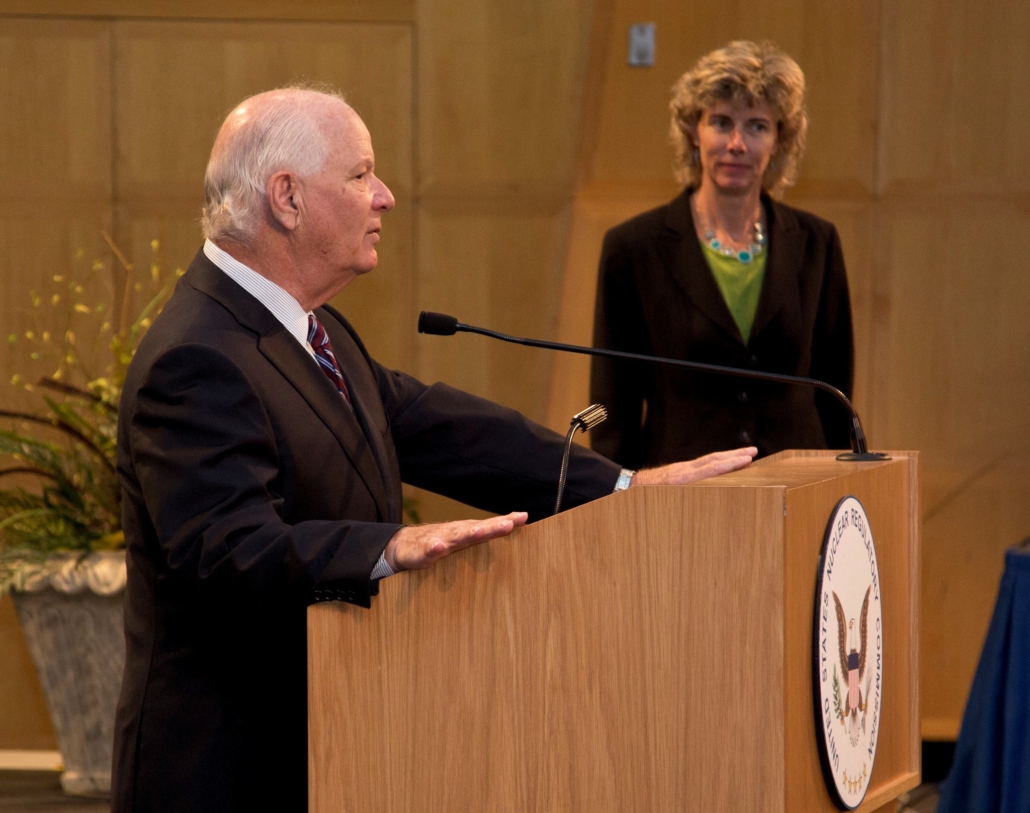The Combating Global Corruption Act of 2019

Cosponsored by six congressmen, Sen. Ben Cardin (D-MD) and Sen. Todd Young (R-IN) re-introduced the Combating Global Corruption Act of 2019 on May 2, 2019. The bill requires the Department of State to rank countries into three tiers by how the country complies with the anti-corruption standards established in section four of the bill. This bill previously died in the 115th Congress. However, the 2019 re-introduction has already proven to be more successful. In mid-July 2019, the Senate placed the Combating Global Corruption Act of 2019 on its legislative calendar.
Cosponsor Sen. Young says, “I am proud of this bipartisan effort to combat corruption around the world by standing with the world’s most vulnerable and holding those in power responsible for their actions.” Global corruption is a direct threat to democracy, economic growth, national and international security. It increases global poverty, violates human rights and threatens peace and security.
Corruption and Global Poverty
Bribery negatively impacts literacy rates and access to adequate health and sanitation services. Eight times more women die during childbirth in places where over 60 percent of the population report paying bribes compared to countries with rates below 30 percent. Bribery significantly increases the costs of services like education and health care while decreasing a family’s disposable income. For example, in Mexico, the average poor family spends one-third of its income on bribes. Some families must use the income meant for school or dinner to pay a bribe to local law enforcement.
Corruption and Human Rights
Article six of the International Covenant on Civil and Political Rights states: “Every human being has the inherent right to life. This right shall be protected by law. No one shall be arbitrarily deprived of his life.”
However, UNICEF reports that every five seconds, a child under the age of 15 dies of generally preventable causes. Over five million of these deaths occur before the age of five due to lack of water, sanitation, proper nutrition and basic health services. Impoverished families living in corrupt communities often do not have access to these services. Therefore, they suffer from higher rates of child mortality. Children are 84 times more likely to die before their fifth birthday in Angola, the sixth most corrupt country in the world, than Luxembourg, the 10th least corrupt country. Corruption denies children their right to life.
Peace and Security
Transparency International’s report “Corruption as a Threat to Stability and Peace” found that corruption fuels conflict and instability. Consequently, more than half of the 20 most corrupt countries have experienced violent conflict. Iraq and Venezuela have violent death rates above 40 per 100,000 individuals.
Further, one of the most profitable forms of corruption is human trafficking. UNICEF estimates that human traffickers generate $32 billion by smuggling approximately 21 million victims each year. Human trafficking occurs in unstable environments where corrupt officials allow criminal activity to persist. The Organization for Economic Cooperation and Development found that addressing human trafficking and combating global corruption together will generate better results.
Combating Global Corruption Act of 2019
The Combating Global Corruption Act of 2019 will establish a three-tiered system of countries by their level of corruption and efforts to combat injustices.
- Tier one includes countries complying with the minimum standards stated in section four of the bill.
- Tier two includes countries attempting to comply with the minimum standards in section four but are not succeeding at the level of a tier-one country.
- Tier three includes countries to which the government is making little, to no effort to comply with the minimum standards in section four.
The minimum standards set expectations about national legislation and punishments to deter and eventually eliminate, the corruption inside a country’s borders. The second part of the Combating Global Corruption Act sets forth a procedure to conduct risk assessments, create mitigation strategies and investigate allegations of misappropriated foreign assistance funds to increase the transparency and accountability for how the U.S. provides foreign assistance to tier-three countries.
Sen. Cardin has four points of focus:
- Fighting corruption must become a national security priority.
- The U.S. government must coordinate efforts across agencies.
- The U.S. must improve oversight of its own foreign assistance and promote transparency.
- The U.S. can increase financial support for anti-corruption work by using seized resources and assets.
According to Sen. Cardin, the Combating Global Corruption Act of 2019 “recognizes the importance of combating corruption as a hurdle to achieving peace, prosperity and human rights around the world.”
– Haley Myers
Photo: Flickr
